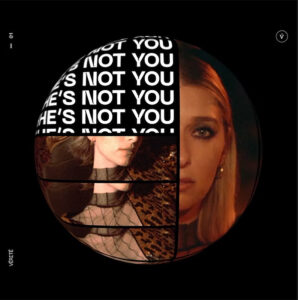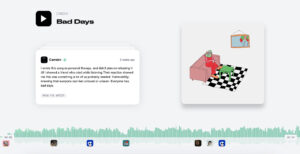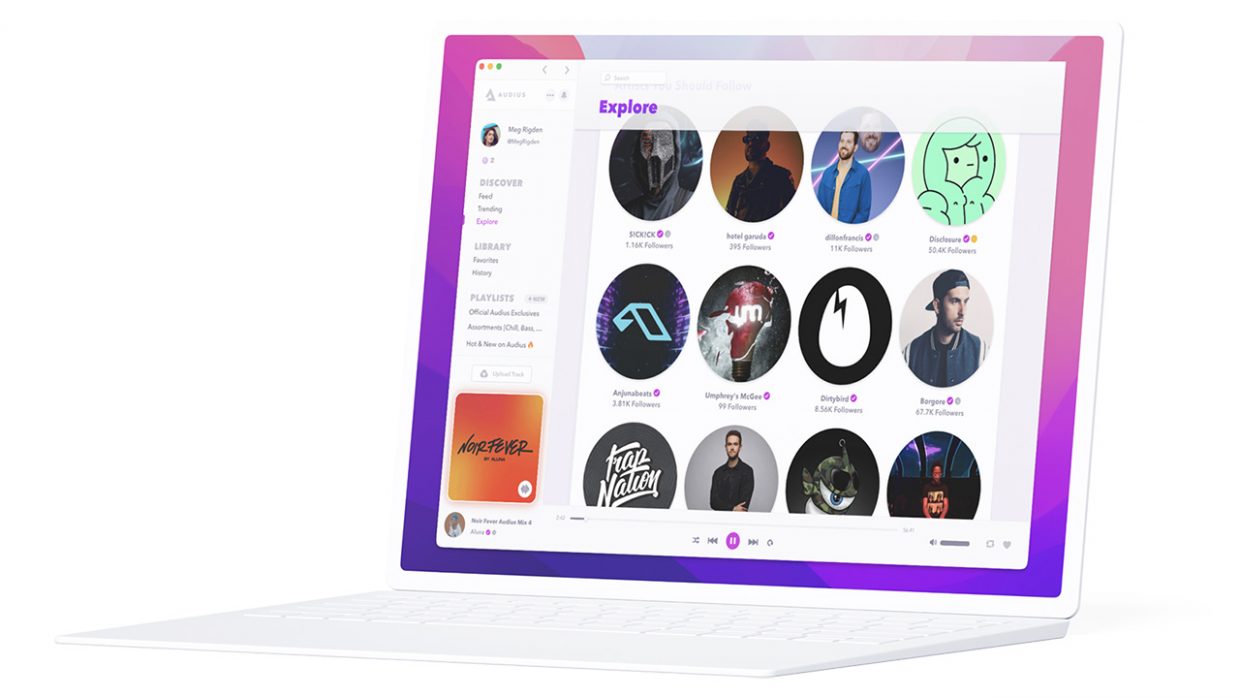Over the past year, major music labels like Universal Music Group, Sony Music, and Warner Music Group dived into Web3 and NFTs, hoping to cash in on the bonanza that saw NFT marketplace OpenSea hit $5 billion in sales during its peak.
In the past months, Universal has partnered with Curio to launch officially licensed NFTs; Sony, in partnership with Snowcrash, has plans to drop Bob Dylan and Miles Davis NFT series; and Warner has inked a deal with NFT marketplace OneOf. Most recently, Kobalt Music Group became the latest music publisher to launch NFTs.

Will of The People by Muse is the first UK number one album to incorporate NFT tech. Image: Muse
While the crypto winter has put a brake on that enthusiasm, the Web3 gates have been opened (Muse has just scored the UK’s first chart-topping NFT album). As a result, many musicians and industry experts are questioning whether labels’ business models make sense for a world that is supposed to be decentralized and creator-focused.
“In some obvious ways, yes, it is a cash grab,” says Michael Donaldson, director of media company 8Dsync, which works with labels. “It’s hard to think otherwise when NFTs are pitched to artists as a shortcut to easy money, and pitched to fans as a speculative property they can profit off of.”
Hidden opportunities behind a sense of inevitability

Snoop Dogg’s NFT projects, such as his partnership with Clay Nation (above), have been pivotal in drawing attention to musicians working in the Web3 field. Image: @claymates on Twitter
Earlier this month, Capitol Records found itself embroiled in a scandal over its promotion of virtual rapper FN Meka, which activists said perpetuated racist stereotypes. The label signed the AI-powered rapper at the start of August, after he amassed more than 500,000 monthly Spotify listeners since his introduction in 2019, spurred on by his NFT collaborations with RTFKT and TikTok in 2021.
“Some of these larger companies coming in feels like the antithesis of the ethos that we’ve set out, which is empowering the creator,” singer-songwriter Vérité, who has released music on NFT royalty-sharing platform Royal, tells Jing Culture & Crypto. “But them coming in is inevitable.”

Singer-songwriter Vérité has released ownership tokens tied to her tracks on Royal. Image: “He’s Not You” by Vérité / Royal
Music labels’ approach to Web3 is not dissimilar to how they approached streaming, says Vérité, which they initially rejected because it disrupted their business model before eventually caving in. As of 2021, the global music industry was worth $24.9 billion, about as much as it was during the peak of the CD era in 2001.
“Currently, I am hopeful because when I see labels entering into this space, it allows artists to initiate partnerships with labels, as opposed to labels controlling the artist’s earnings and likeness,” songwriter and producer Harrison First, who has released music on NFT music platform Catalog, tells Jing Culture & Crypto.
Mainstream music industry players also have something that the Web3 space is still working on: cachet. Speaking with Jing Culture & Crypto, jazz musician Camden, who has released music on NFT music platform Sound.xyz, pointed to Snoop Dogg’s successful NFT drops as an example of projects that have resonated well with Web3 fans and brought attention to the space.
“I do think major artists dropping NFTs brings more credibility to the model,” he says.
Working in Web3 carries the “same dumb traps” for musicians

Music labels entering the Web3 space could allow “artists to initiate partnerships with labels,” says Harrison First. Image: “Escape Velocity” and solo by Harrison First / Catalog
For Harrison First, the number one risk for musicians in Web3 is “falling into the same dumb traps we always have,” such as taking large advances from labels or investors while banking on future earnings from things like NFTs and metaverse merchandise.
“There is a trade-off — and that’s control and ownership. Are you willing to give up control and ownership for an advance?” he adds.
But in Web3, where artists have more tools than ever at their disposal to make money from their music, Tatiana Cirisano, analyst at MIDiA, a music industry research firm, tells us that independent artists have an advantage over label-backed ones, as the former own all the rights to their music. Even then, the allure of working under a big label might be too strong for some.
“My only issue with that is how much money or data is going to be accessible to the artist or how much will the label maintain and keep,” says Vérité. “Labels sign a lot of things. They throw a lot of things against the wall. And if it works, you’re going to be a star, and if it doesn’t work, you’re going to be essentially stuck and unable to move.”
A better mousetrap

Jazz musician Camden sees ways for NFTs, with their benefits and utility, to not just change the way music is valued, but to add value to music. Image: “Bad Days” by Camden on Sound.xyz
While the growth of streaming enabled more musicians than ever to make money from their art, it also devalued that same art. So artists are starting to see Web3 as an opportunity to fix how music is valued, away from the Web2 model where they are paid only fractions of a penny per stream.
“I’ve had music play worldwide in Zara and H&M stores, and it resulted in a $20 paycheck,” says Camden. Web3, on the other hand, “feels like a good opportunity for your music to be valued the way art is valued.”
NFTs are just one example of how to value music in new ways, but it is one that encapsulates the benefits and utility of Web3 well. Camden started a group chat with his NFT collectors, which allows him to send them unreleased songs and special announcements. “It definitely feels like a deeper connection with people listening to my music, especially since they are invested in it,” he says.
In the end, while Web3 is still going through teething problems, from outages to rug-pulls, there is a general sense among artists that, finally, this might be the start of an era when creators have more say over their music than a music executive sitting in a boardroom.
“We could argue that Ethereum could go down or get outlawed, so this is not a magic bullet,” says Vérité. “But it is becoming a bit of a better mousetrap.”



